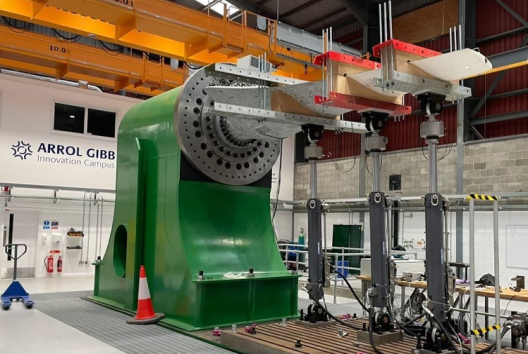Tidal energy project led by Oxford University
A £7mln project to help deliver scalable, affordable and sustainable tidal stream energy, is to be led by The University of Oxford, UK.

Accelerated testing of full-size tidal turbine blades at Edinburgh’s FastBlade testing facility.
© FastBladeThe team says ‘Co-design to deliver Scalable Tidal Stream Energy’ (CoTide) will deliver the understanding, tools and data to support the reductions in cost and uncertainty needed to deliver scalable, sustainable, and affordable tidal stream energy.
The project will also further develop deep collaborative academic-industry partnerships that will help support and deliver future tidal energy technologies and wider research.
The project will bring together three multi-disciplinary teams from the universities of Oxford, Edinburgh, and Strathclyde, backed by investment from the Engineering and Physical Sciences Research Council (EPSRC).
CoTide will focus on developing tidal stream turbine systems, these turbines are fixed directly out at sea in the line of the strongest, most suitable tidal flows.
If fully developed across the UK, tidal stream systems have the potential to generate in excess of 6GW Oxford claim, enough to power over five million homes, with an export market worth £25bln supporting over 25,000 marine energy jobs.
Technical challenges remain, and tidal stream systems require careful design to maximise power while providing reliability in hostile marine environments characterised by corrosive seawater and unsteady loading caused by waves and turbulence.
CoTide will bring together expertise across device hydrodynamics, rotor materials, corrosion, risk and reliability, environmental modelling, and system control and optimisation.
Project lead Professor Richard Willden, from the University of Oxford’s Department of Engineering Science, said: ‘We have a huge opportunity as a country to harness the powerful tides that surround us and use innovative engineering to develop greater energy security and solutions to help meet our 2050 net zero goals.’
The researchers will work with a group of over 20 industry stakeholders and regulatory bodies, including EDF Energy Plc, the Health and Safety Executive, the Marine Energy Council, and global manufacturer Arkema International.







